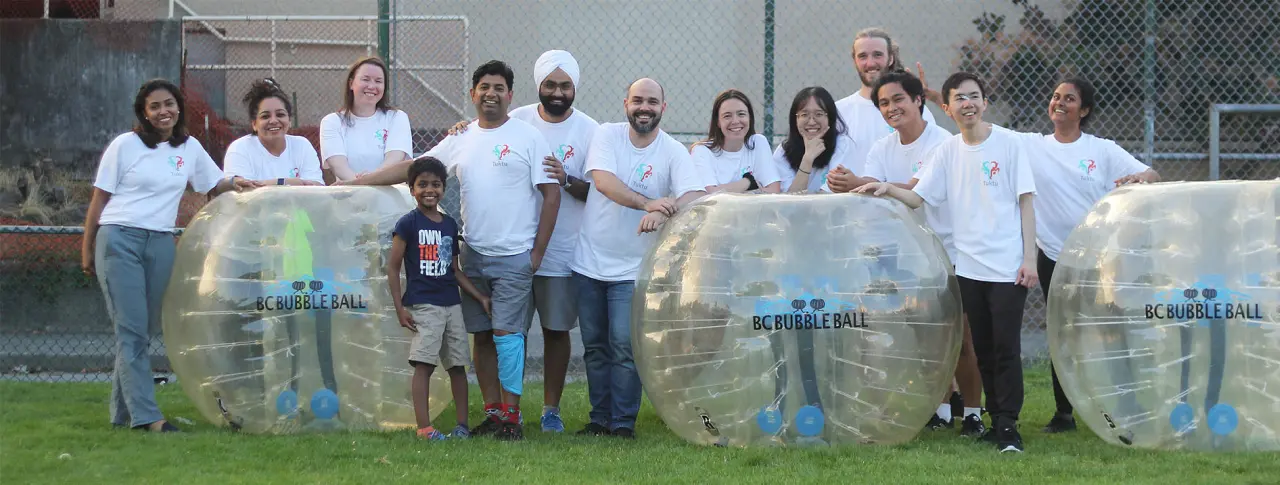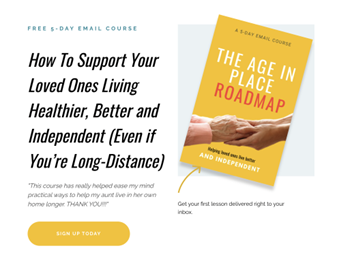A Guide for Supporting Your Aging Parents (Part 3) – Fostering Independence and Quality of Life

Promoting Physical and Mental Well-being
Physical and mental health are foundational in the journey of aging in place.
When Brenda’s aunt first started experiencing joint stiffness. It became apparent that a more active lifestyle could help her manage her condition. With her doctor’s guidance, she introduced low-impact exercises into her daily routine. A Virtual Yoga Class has now become her morning ritual, not only promoting her physical flexibility but also contributing to her emotional wellness.
Scientists now understand the critical role of both nutrition and lifelong activity to slow down the cognitive decline that takes place in aging.
Supporting Independence in Daily Activities
The ability to navigate daily activities independently is a significant aspect of aging in place. In this realm, assistive devices can be a game-changer. When Raj’s dad’s arthritis started affecting his ability to work in his garden, he was able to find a companion gardening buddy, allowing him to continue his gardening routine.
While encouraging self-reliance, it’s essential to ensure safety. Regularly assessing our loved one’s ability to handle tasks independently is a good way to maintain your peace of mind. Let your parents know that you’re there for support, and that you want to be able to help when you’re needed.
Addressing Emotional and Social Needs
The emotional aspect of aging can be really difficult to navigate.
Feelings of loneliness or loss of identity are very common among aging adults. Emily’s mother-in-law, post-retirement, felt a void that she couldn’t define. To fill this, Emily and her husband suggested she start volunteering at a local animal shelter. It gave her a sense of purpose and a new community, which has completely changed her outlook on aging after retirement.
Help your parents stay connected, both within and outside the family. Encourage them to participate in activities they enjoy. Maintaining social bonds and seeking emotional support are key to enhancing their emotional health.
We’ve created a FREE 5-Day Email Course that offers lots of practical strategies and ideas to help you support your loved ones.
Adapting Plans as Needs Change
Aging in place is an evolving journey, and the needs of our parents may change over time. It’s important to stay observant, recognizing any shifts in their abilities or comfort levels.
For instance, if a regular walk becomes taxing for your father, consider modifying the routine to shorter, more frequent walks, or even walking in place inside the home.
The ability to adapt plans and strategies as needs evolve is key to a successful aging-in-place journey. It’s important to be patient,responsive and open to reevaluating the current plan, making necessary adjustments to maintain the comfort and independence of our loved ones.
Conclusion
Supporting our parents as they navigate the journey of aging in place is an act of love, compassion, and gratitude. We’ve journeyed together through understanding their unique challenges, setting up a supportive environment, and fostering their independence and quality of life. It’s always about empowering them to continue to live and thrive in the comfort and familiarity of their own home.
As mentioned earlier, we encourage you to sign up for the FREE 5-day Email Course: The Age In Place Roadmap. This resource provides comprehensive advice and practical strategies to help loved ones thrive in the golden years.
At Tuktu, we are a one-stop solution for at-home care. All services offered by friendly, safe and affordable companions from your loved ones’ neighborhood. If your loved one lives in the British Columbia area, give our team a call to see how we can support you.

Until next time!



